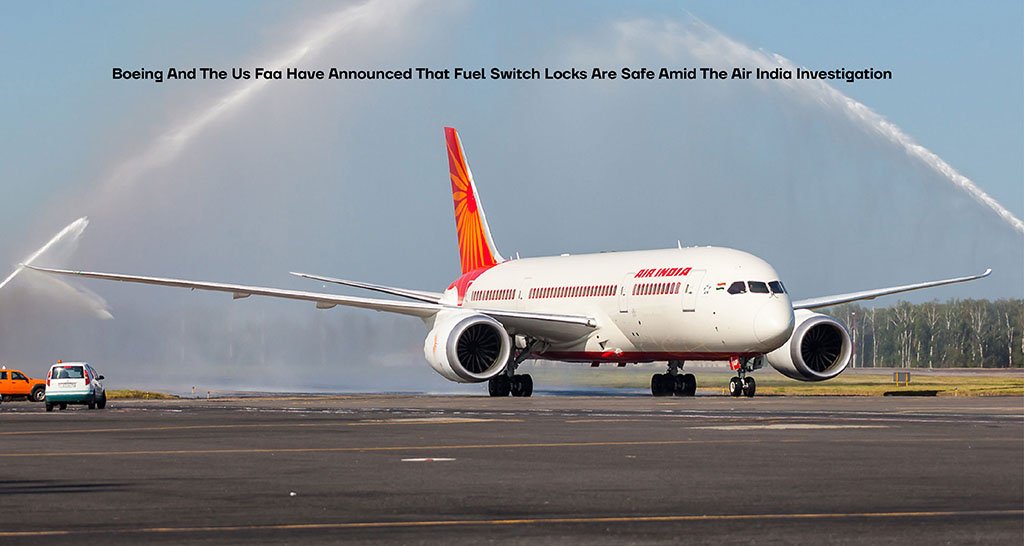The U.S. Federal Aviation Administration and Boeing (BA.N) have privately sent out notifications stating that the fuel switch locks on Boeing aircraft are safe.
Following concerns about engine fuel cutoff switches in a preliminary report into Air India’s Boeing 787-8 crash, which claimed 260 lives last month, the FAA issued its Continued Airworthiness Notification on July 11.
“Although the fuel control switch design, including the locking feature, is similar on various Boeing aeroplane models, the FAA does not consider this issue to be an unsafe condition that would warrant an Airworthiness Directive on any Boeing aeroplane models, including the Model 787,” the FAA stated in its notification to Civil Aviation Authorities, which Reuters was able to view.
In response to a request for comment, the FAA stated that it had nothing more to say than the notification. According to two people with direct knowledge, Boeing also cited the FAA notification in a Multi-Operator-Message that was sent to the airlines a few days ago, stating that the aircraft manufacturer is not recommending any action.
The 2018 FAA advisory, which advised but did not require operators of various Boeing models, including the 787, to check the locking feature of the fuel cutoff switches to make sure it could not be moved accidentally, was cited in the preliminary investigation report into the crash by India’s Aircraft Accident Investigation Bureau (AAIB).
According to the report, Air India claimed that the FAA 2018 advisory was not a requirement, so it had not conducted the inspections that the FAA had recommended. However, it also stated that the plane involved in the crash had its throttle control module, which includes the fuel switches, replaced in 2019 and 2023, according to maintenance records.
According to the report, “all applicable airworthiness directives and alert service bulletins were compiled on the aircraft as well as engines.”
In a statement released on Saturday, ALPA India, the organisation that represents Indian pilots at the International Federation of Air Line Pilots’ Associations in Montreal, rejected the idea that pilot error occurred and demanded a “fair, fact-based inquiry.”
ALPA India President Sam Thomas told Reuters on Sunday that the pilot’s body “must now be made part of the probe, at least as observers.”
In a letter published on X, ALPA India stated that the 2018 FAA advisory “concerning the fuel control switch gates, which indicates a potential equipment malfunction” was cited in the preliminary investigation report.
The voice recorder in the cockpit captured one pilot asking the other why he had cut off the fuel in the last moments of the flight. According to the report, “The other pilot responded that he did not do so.”
Shortly after takeoff, it was reported that fuel switches had nearly simultaneously switched from run to cutoff. How the switches might have flipped during the flight was not explained in the report.
Although the investigation report did not indicate a bias towards pilot error, two U.S. safety experts stated on Saturday that they supported ALPA India’s request to be observers in the inquiry.












